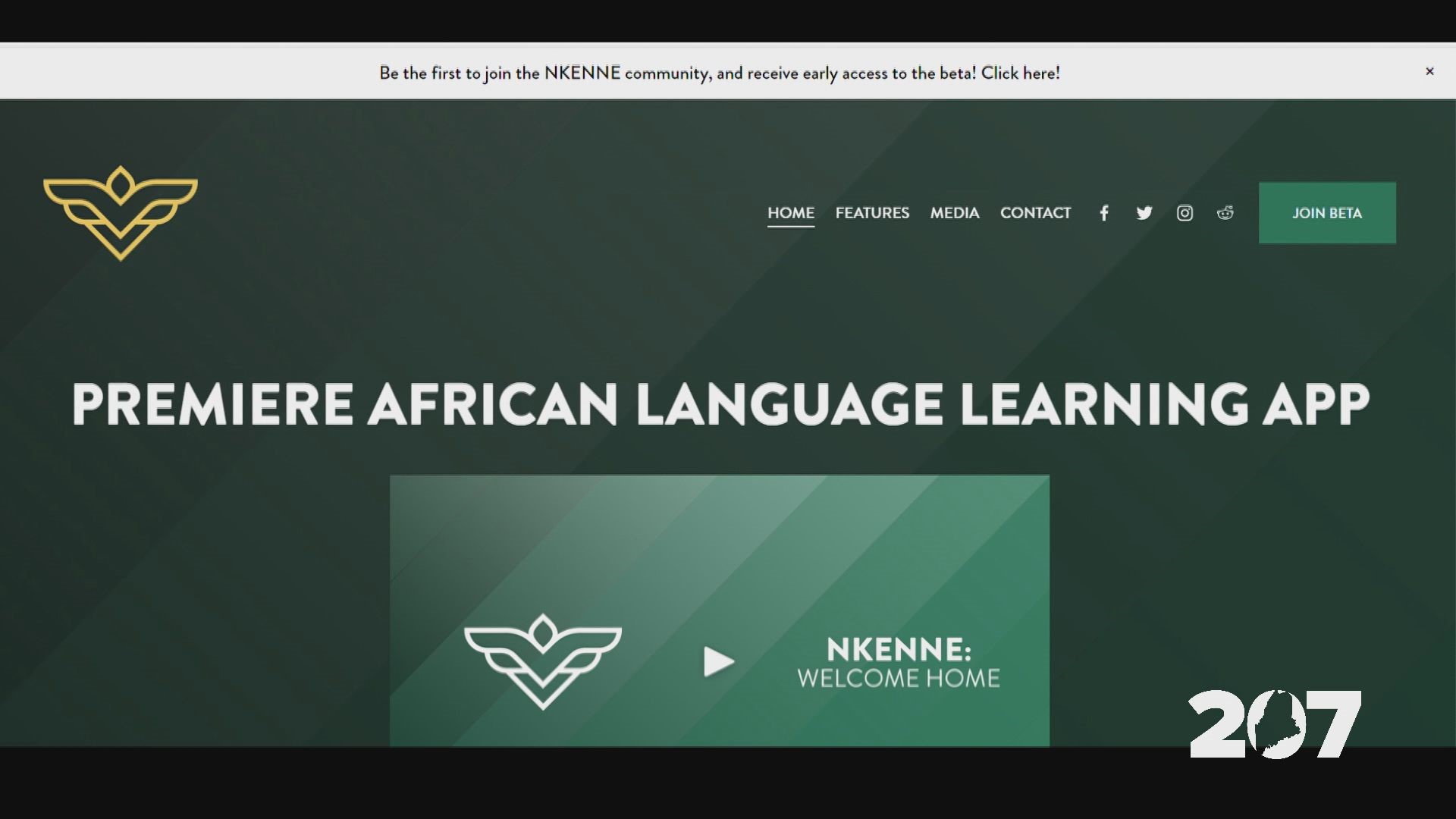PORTLAND, Maine — We often hear the expression ‘there’s an app for that' – but when Michael Odokara-Okigbo went looking for an app to learn African languages, he couldn’t find one. So, he did what every entrepreneurial young man would do and decided to build one himself. 207 talked with Michael.
How did you get the idea for this?
"I was actually learning French over the pandemic, I wanted to learn another language and occupy my mind, but I really had also wanted to learn my native language of Igbo."
Michael couldn't find any apps to help him learn.
"In the language learning space, there are no African language learning apps," he determined. "I looked at the market opportunity and I thought this could be an incredible thing to not only put time in, but also maybe create a community with."
He began to work on an app that would not only teach language but bring people together as they delved into learning.
"We are the first African language learning app in the market that teaches mother tongues to people that are interested in African languages," says Michael. So, NKenne, which is actually named after my mom – it’s her middle name – 'Shalom Nkenne Odokara' means 'of the mother' in the Igbo language," he says.
How many African languages are there?
"There are thousands of African languages. What makes NKenne completely different is that we’re building the first fluid African language database. You know you have words in African languages that can mean six, seven different things. So you have to be specific with the kind of machine-learning capabilities that you have because there are different ways to say one word."
Right now the app utilizes the Igbo language but plans to expand to other native tongues.
"We are launching officially late August, early September, where we’ll have four languages on launch – Somali, which is a prominent Maine language, Swahili, Igbo, and Yoruba," says Michael.
Yoruba is a language spoken in West Africa, primarily in Southwestern Nigeria. NKenne is utilizing feedback from users, or 'community members' as they call them, as it shapes future content.
Michael relies on that feedback.
"They tell us what they like, what they don’t like. They even told us that they wanted to have Swahili on as one of the languages, so that’s part of one of the reasons why we’re putting it on. We have our users connected – they connect with each other – we’re beginning to also add mechanisms where they practice with each other. So, we’re building a community-based African language learning app."
Because it’s an app, this community could essentially be global. Somebody using it in Maine could be practicing with somebody in another country.
"That’s the goal. It is an inclusive language learning app that celebrates people of all heritages, sexual orientations, creed, no matter who you are. If you just wanna connect with people who are interested in African languages this is your platform."
What is your goal with this?
"The goal is starting to become fulfilled. You should seem some of the comments that we’re getting from our users. It feels like they’re retaining some sort of their heritage again, which has been incredible to see.
"But you know, our main goal right now is to get NKenne into universities. We are not only building NKenne, but we are building NKenne for students which is a separate desktop platform where professors will be easily able to teach African languages. Our hope is to build a community that is excited about speaking African languages and learning something different within themselves whether they are connected to the continent or not," says Michael.
The app is still in development and will eventually include a blog, podcast, and chat room. NKenne has been in the finals of Greenlight Maine and won the Emerging Business Award from Gorham Savings Bank. And if you recognize Michael, it is because he is also a recording artist under the name of "Michael O." Years ago, along with the Dartmouth Aires, he was the runner up in NBC’s a Capella contest "The Sing Off."
To learn more about NKenne, click here.

